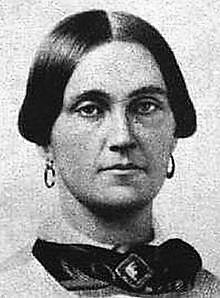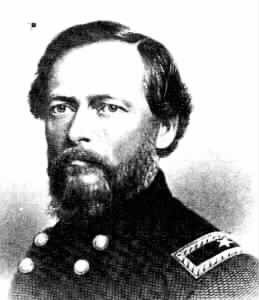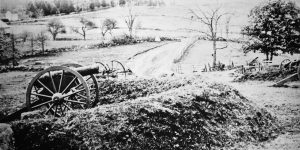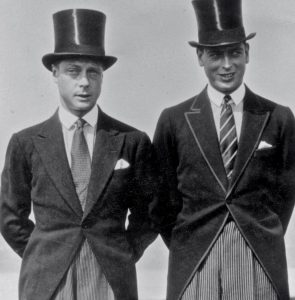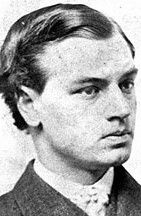Previously in the novel: Mercenary Leon fails in a kidnapping because of David, better known as Edward the Prince of Wales. Also in the spy world is socialite Wallis Spencer, who dumps first husband Winfield, kills Uncle Sol, has an affair with German Joachin Von Ribbentrop and marries Ernest. David and his brother George go to Buenos Aires where George is seduced by sex, drugs and booze.
On Monday morning after the hunting weekend at Thelma Furnace’s estate in Mowbray, the Simpsons rode back to London in the back seat of their limousine. Ernest hopped about like a little boy.
“Imagine, we got to meet two princes at one time!” He nudged his wife. “I think they liked you.”
There were times when Wallis was on the verge of loving her husband. This was not one of those times. She blew smoke in his face.
“You think?” She didn’t disguise her disgust. “My God, Ernest, I thought you were going to sell me to the highest bidder.”
“Wallis, my love,” he protested. “Don’t be crass. I wouldn’t take money for you. All I was doing was expressing my depth of tolerance and discretion, two qualities not to be underestimated in these modern times.”
“You must explain the difference to my panties sometime.”
Ernest laughed. “Oh, you know I’m teasing. I’m all the time teasing.” He paused for a response that was not forthcoming. “Anyway, we’ll probably never hear from either one of them again.”
Wallis knew that was not true. David was going to be in their lives for a long time to come. But she had more important things to consider. The general ordered her to gossip. She loved to gossip, and when MI6 ordered her to gossip, she had to take it seriously. National security depended upon it.
After they unpacked at the Bryanston Court apartment, Ernest ran off to the nearest pub to regale his Grenadier Guard chums with tales about the Prince of Wales. Wallis, on the other hand, settled down at her desk to write her bread and butter note to Thelma. She wrote several drafts, wadding them up and throwing them into her trash basket decorated with tiny pink bows. She had to use precise words to express her sincere appreciation with the right touch of vivacity and insouciance. After all, if she were too nice, Thelma might think she was up to something nefarious, which she was. Wallis had been closer friends with Connie, Thelma’s sister, than she had with her. She still couldn’t decide if she really liked Thelma at all. But duty demanded it.
Her thank you note evidently worked because a week later she and Thelma sat in a sidewalk café in the Mayfair district sipping mint tea and nibbling almond biscuits.
“I must say, Prince George is the most handsome man I have ever met,” Wallis whispered, her eyes sparkling. “I was simply devastated when he dashed off before supper at the hunting weekend.”
Thelma raised a penciled eyebrow. “Blame James Donohue. I didn’t even invite him to the party, for good reason too.”
“Who’s he?” Wallis fluttered her eyes.
“He’s married to the Woolworth fortune. His own family cuts pigs up for a living.”
“You mean cheap jewelry and ice cream Woolworths?” The thought of running dead animals through a machine to turn them into goo was much too dreadful to discuss. She concentrated instead on the family who made billions of dollars selling trinkets. “What was he doing in London? Buying miniature Big Bens wholesale to sell in their stores?”
Thelma took time to sip her mint tea. “I’d rather not talk about Mr. Donohue. He’s exotic in more ways than a respectable woman should acknowledge.”
“I though Prince George was considered quite exotic himself.”
“George has problems. Mr. Donohue is a problem.”
Wallis could tell the conversation was making Thelma uncomfortable. Her normally pleasant smile pinched into a scowl. Her petite nose was curdling as though it smelled barnyard stench.
“Who else is a problem?”
Thelma’s expression did not change. “Kiki Preston.”
“Oh, I think I’ve heard of her,” Wallis quipped. “She’s the girl with the silver syringe, isn’t she?” When Thelma chose to stick an entire almond biscuit in her mouth rather than reply, Wallis decided to move on to another topic. “So. Tell me how you met the Prince of Wales.” She knew this was the right question because Thelma relaxed and slid back in her chair.
“My goodness. That was many years ago. Nineteen eighteen. We were at a county fair handing out rosettes to cows, I think. He took me to this ramshackle structure he called Fort Belvedere. He drove too fast.” She puffed on her cigarette. “David was quite adorable as he described how he was going to turn it into his country home.” She looked at Wallis. “You know his family and closest friends call him David, don’t you?”
She smiled. “I’ve heard rumors to that effect.”
“I decorated Belvedere for him and I acted as hostess for his weekend parties.” Thelma paused to light a fresh cigarette. “We frequently make love. But I’d never marry him.”
“Why not?”
“Like I said, he drives too fast. He disappears for weeks at a time and when he returns it’s like ‘hail the conquering hero’, you know. No explanation. Let’s have a party.”
“Sounds like fun.”
“It’s not like he’s interested in marriage. I’m sure you’ve heard of Freda Ward. She thinks she’s a movie star. She’s bedded David many times. Hosted at Belvedere too. And then, of course, there’s Princess Stephanie. Von Ribbentrop introduced them. You know all about Stephanie and Ribbentrop, don’t you?”
Wallis smiled. “I’ve met Joaquin but I haven’t the foggiest about Stephanie.”
“She’s some adventuress from Vienna. Stephanie claims the title of a princess because she married a member of the Austrian royal family for thirty minutes. She’s supposed to be a close friend of Adolph Hitler. And the servants at Belvedere tell me she spent a torrid two weeks with David but then disappeared.”
“Proving there is a God after all,” Wallis murmured before taking a last bite of her almond biscuit.
“I like you,” Thelma announced. “I like your style. We must go shopping.”
Over the next couple of months Wallis and Thelma went shopping several times, hosted each other in their homes and attended lavish events that Wallis had only read about in the newspapers. The only problem was that, try as she might, she could not pry any fresh gossip out of her new sophisticated friends about Prince George and the darker life he lead. She supposed they were practicing extreme discretion out of respect for the Royal Family. To hell with discretion!
Before long the newspapers were extolling the Brothers Royale for enduring their extended tour of South America. After the opening of the British Exposition in Buenos Aires, the brothers insisted on exploring the interior jungles of Argentina and Brazil. It was at this time Prince George came down with a lengthy list of loathsome diseases such as dengue fever, dysentery and infected insect bites.
Bullshit! He was going through drug detoxification. Wallis could not help but snort as she punctured her soft boiled egg one morning at Bryanston Court.
“Anything interesting in the paper?” Ernest‘s head leaned into the financial pages, though there was nothing for him to be worried about—the shipping industry was doing fabulously well.
“The boys are back in town.”
“Who?”
“The clown princes of Mayfair.”
“Very clever.” Ernest lowered the newspaper. “You wouldn’t say that to their faces, would you? It might hurt their feelings.”
“What if it did?” Wallis puffed on her cigarette. Ernest could be so tiresome.
“Well, it’s just that recently we’ve been having a gay time with a better circle of friends. I mean, I didn’t know Thelma’s other sister was the fabulous Gloria Vanderbilt.”
“Very well, just for you and little Gloria I shall behave.” Wallis didn’t realize she would be required to keep that promise so quickly. A messenger appeared at Bryanston Court by late afternoon with an invitation to be presented at St. James Court. Of course, that did require a bit of manipulation. Wallis had to offer to the royal staff her official divorce decree that she had been the injured party in her divorce from Win Warfield. In addition, she was not a British citizen. While Ernest’s dual citizenship was enough to gain admission for himself, it was not sufficient for Wallis. She had to find another British citizen to sponsor her. She wondered why she had to jump through so many hoops. After all, they invited her. Oh well, she decided, who can ever understand the ways of royalty.
Finally, she had to find something decent to wear. Ernest’s Grenadier Guard uniform would serve nicely for him, but Wallis had to scramble for a stunning gown. She borrowed Connie Thaw’s presentation gown, train, feathers and fan.
When the night came, Wallis and Ernest joined the other breathless socialites in a queue which weaved its way through four or five chambers of St. James’s palace before they reached the throne room. Wallis was bored, but Ernest made several new friends winding back and forth, nodding and chatting each time they passed.
The presentation itself only lasted thirty seconds; they backed out of the room and then explored other royal apartments, pausing only to bow and curtsy when the Prince of Wales and his retinue exited.
“Where is Prince George?” Ernest whispered.
“He had a bad case of the runs,” she muttered as she curtsied. She then heard the prince comment to General Trotter.
“Something ought to be done about the lights. They make all the women look ghastly.”
Wallis decided she had had enough pomp and pomposity. She told Ernest she was ready to go to Thelma’s townhouse for some hard liquor and hard laughs. They made a quick exit. She had just deposited her train and feathers with Thelma’s maid when the prince arrived.
He walked over to the Simpsons and extended his left hand to shake with Ernest. Wallis rolled her eyes. She had heard from friends David had this irritating habit of shaking with the wrong hand.
“So, I hope your brother, His Royal Highness Duke of Kent, is recovering sufficiently from his recent discomfort,” Ernest offered.
The prince’s eyes widened in alarm. “I beg your pardon?”
“Dysentery,” Wallis muttered. “It was in all the best newspapers.”
“Oh. Yes. Much. I had a touch of it myself. Damn Amazon. Never drink from it.” He smiled and appraised Wallis in her borrowed dress. “Mrs. Simpson, you looked exceptional in your gown.”
“But sir, I understand that you thought we all looked ghastly.”
“I had no idea my voice carried so far.”
He bowed and crossed the room to chat with a coterie around Thelma. No more than fifteen minutes had passed before the prince began to make his apologies and left.
“Oh my. Between the two of us, I’m afraid we have made the social blunder of the season,” Ernest quipped in a self-mocking tone.
“Shut up, Ernest,” Wallis snapped. “We’ve done no such thing. I’m starving. Get me a martini with two olives.”
After her second martini, Wallis handed the glass to her husband and ordered, “Get my wrap and let’s get the hell out of here. My feet are killing me.”
When they walked out of the building they were met by the Prince of Wales leaning against his long sleek black limousine. He smiled. “Need a ride?”
“How kind of you to wait.” Ernest’s face beamed.
The prince opened the door and Wallis slid in.
“Bryanston Court,” she said. Inside she was not surprised to see General Trotter. All she had to figure out was how to get rid of Ernest.
Ernest, by the way, continued to glow in surprise. “I know you. You’re General something.”
The general extended his hand. “Trotter. We met at Lady Thelma’s country house.”
“Have you been waiting out here the entire time?”
Wallis sighed. Ernest didn’t know when to keep his damn mouth shut.
“My dear General Trotter, you don’t have to explain anything to Ernest Simpson. He just owns a few little boats that carry beans and things across the Big Pond.”
Ernest laughed. “Isn’t she outrageously funny? I just adore her.” He turned to the prince. “Wallis and I would consider it an extreme honor if you and the general would pop up for a quick drink.”
Wallis rolled her eyes. “Ernest, please, don’t be so dreary.”
“No, no,” the prince interceded. “We’d be delighted. Wouldn’t we, general?”
“Of course, your highness.”
The four of them exited at Bryanston Court and the limo driver pulled to the side of the street to await the return of the prince and the general. Ernest carried on about how the fellows from his regiment would react upon hearing the Prince of Wales dropped by for a cocktail. Wallis continued to fret to herself about how they would go about conducting business with Ernest dancing around playing host.
“How about martinis for everybody?” Ernest asked as he opened the liquor cabinet.
The general went to him. “Please, don’t go to that much bother. Why don’t I just pour out a bottle of wine?”
Ernest plopped on the sofa next to the prince. “Imagine? A general serving me? Only in England.”
Wallis watched Trotter pour a powder into her husband’s glass. Completely oblivious, Ernest gulped it down as he continued to grin at the prince.
“I do believe you will be a king who will change the landscape of Europe.”
“I agree.” Trotter smiled and patted Ernest’s shoulder. “Would you like for me to freshen your drink?”
“Yes, please.”
Ernest sipped on the second drug-based glass of wine until he lost his train of thought in mid-sentence. Blinking, he tried to remember the next word he wanted to say, but without success. His hand holding the drink sagged. David reached over to grab it just about as Ernest’s eyes went up in his head and his body went limp.
General Trotter spread Ernest’s body out and grabbed him under his arm pits. “Which way to his room?”
“The door on the left.” Wallis bumped David out of the way. “I better handle this.”
He bumped her back and grasped Ernest’s legs. “I think not. You get the door.”
As Wallis walked to the bedroom, she called back, “A gentleman would have gotten the door.”
David walked by, bent over carrying Ernest’s weight. “You’d better learn. I’m no gentleman.”
“Children,” Trotter chided. “We’ve work to do.”
After Ernest was properly tucked in bed, the others settled comfortably in the salon.
“We must all agree, after the last debacle in Buenos Aires, James Donohue must be eliminated,” the general announced, his face turning grim.
David lit a cigarette. “How about the other two, Jorge and Kiki?”
“We can’t kill them all off at one time,” Trotter explained with an air of condescension.
“Yes, we can’t have a pandemic of socialite deaths,” Wallis added.
“I suppose it makes sense to go after Donohue first,” David conceded. “He said something curious in South America. He said he was a dead man walking.”
“Well, we can’t wait for it to happen naturally,” Trotter replied, eyeing each of them. “We have to poison him several different ways to ensure he dies.”
“Like Rasputin.” Wallis’s eyes twinkled.
